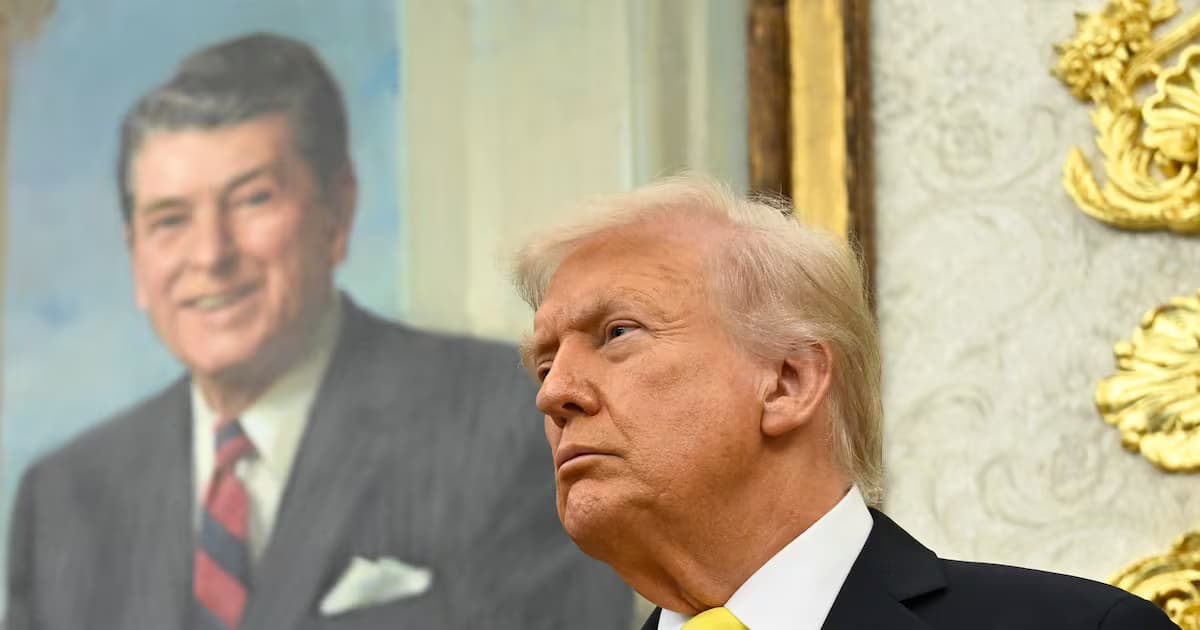We're loading the full news article for you. This includes the article content, images, author information, and related articles.
The revelation escalates tensions between the US and Venezuela, with President Nicolás Maduro condemning the move as a CIA-orchestrated coup and raising concerns about regional stability.

US President Donald Trump on Wednesday, October 15, 2025, confirmed that he has authorised the Central Intelligence Agency (CIA) to conduct covert operations in Venezuela. This announcement marks a significant escalation in his administration's pressure campaign against the government of President Nicolás Maduro.
President Trump also indicated that his administration is considering potential land-based strikes in Venezuela, a move that would go beyond the recent series of lethal attacks on boats in the Caribbean. These maritime operations have been condemned by Democrats and United Nations experts as unlawful.
In response, President Maduro vehemently denounced the US actions, describing them as "coups d'etat orchestrated by the CIA." Speaking to a committee established after Washington deployed warships to the Caribbean for what it termed an anti-drug operation, Maduro declared, "No to war in the Caribbean… No to regime change… No to coups d'etat orchestrated by the CIA."
Relations between the United States and Venezuela have been strained for years, particularly since Hugo Chávez came to power in 1999 and adopted an anti-imperialist stance against the US. Tensions further escalated under President Maduro, with the US ceasing to recognise him as Venezuela's legitimate president in January 2019. The Trump administration has since pursued a strategy of diplomatic, economic, and legal pressure to compel Maduro to leave office.
The US has imposed over 350 Venezuela-related sanctions since 2017, targeting various entities and individuals within the Venezuelan government. In August 2019, an executive order blocked all property and interests of the Venezuelan government within US jurisdiction. The US has also offered a $50 million bounty for information leading to Maduro's arrest and conviction on drug trafficking charges.
President Trump stated that he authorised the covert CIA operations for two primary reasons: the alleged emptying of Venezuelan prisons into the United States and the significant flow of drugs from Venezuela, largely via sea. The Trump administration earlier this month declared drug cartels to be unlawful combatants, asserting that the US is now in an "armed conflict" with them to justify military action against drug flows.
However, the legality of these strikes has been questioned by some lawmakers and human rights groups. UN experts in September condemned the US strikes on alleged drug-trafficking boats as "extrajudicial executions," stating that international law does not permit governments to simply murder alleged drug traffickers. They emphasised that criminal activities should be addressed through investigation and prosecution in accordance with the rule of law and international cooperation.
Senator Jeanne Shaheen, a ranking Democrat on the Senate Foreign Relations Committee, expressed concerns that the administration's actions are moving the US closer to outright conflict without transparency or oversight. She called for clarity on whether the administration is leading the US into another conflict or pursuing a regime-change operation.
Venezuela's Foreign Ministry, in a statement, rejected President Trump's "bellicose and extravagant statements," calling them a grave violation of international law and the UN Charter.
The escalation of US military and covert operations in Venezuela carries significant risks, including the potential for a broader conflict in the region. Russia and China have condemned the US military threats against Venezuela at a UN Security Council meeting, with Russia's ambassador warning against an "irreparable mistake" that could affect the entire region. Venezuela's UN Ambassador, Samuel Moncada, accused Washington of seeking excuses to fabricate a conflict to control oil resources.
It remains unclear whether any specific missions have been launched under the recently authorised CIA directive or if it was issued as a contingency measure. President Trump declined to comment on whether the CIA has the authority to target President Maduro directly.
The series of US strikes against alleged drug-smuggling boats in the Caribbean began in early September 2025. The Trump administration has indicated that military operations against drug cartels will continue.
Observers will be closely watching for further developments regarding potential US land operations in Venezuela and the international community's response to the escalating tensions. The United Nations has urged de-escalation and adherence to international law in efforts to counter organised crime.
Keep the conversation in one place—threads here stay linked to the story and in the forums.
Sign in to start a discussion
Start a conversation about this story and keep it linked here.
Other hot threads
E-sports and Gaming Community in Kenya
Active 9 months ago
The Role of Technology in Modern Agriculture (AgriTech)
Active 9 months ago
Popular Recreational Activities Across Counties
Active 9 months ago
Investing in Youth Sports Development Programs
Active 9 months ago